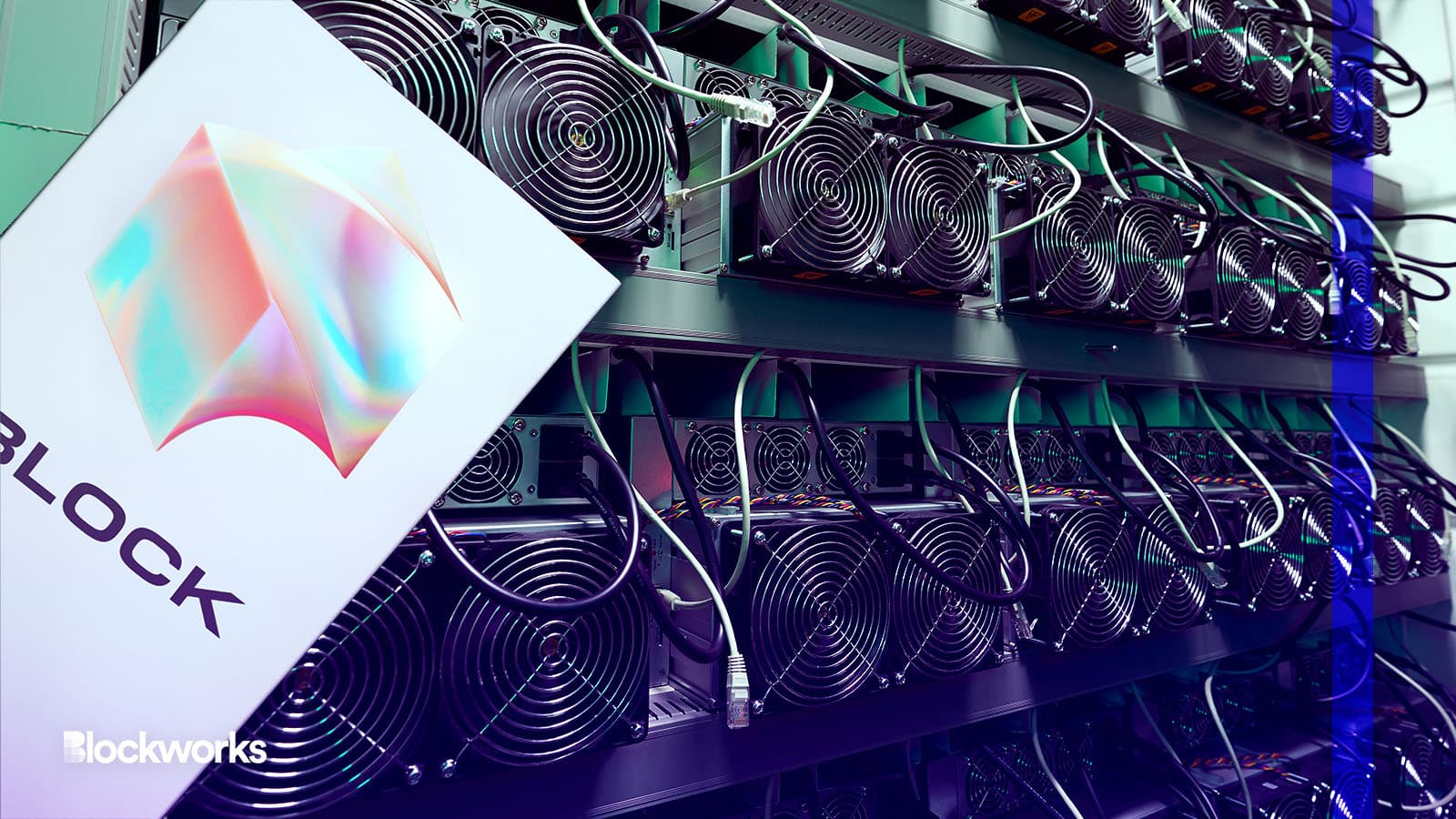Jack Dorsey’s Block Looks to Disrupt Bitcoin Mining
Block plans to create custom silicon for bitcoin mining hardware to bring decentralization to the industry

Artie Medvedev/Poetra.RH/Shutterstock modified by Blockworks
Jack Dorsey’s Block is on a mission to shake things up in the bitcoin mining world by creating its own custom silicon for mining hardware.
With only a few companies dominating the supply of bitcoin mining ASICs, Block is looking to level the playing field and bring some much-needed decentralization to the industry.
Plus, the company revealed it scored a deal with Intel for a stash of bitcoin mining ASICs, giving it a major boost to accelerate its mining system development and focus on creating the next-gen three nanometer ASICs, which are only accessible to a few companies worldwide.
The chip giant only recently announced that it would discontinue its bitcoin mining chip, and will stop taking orders on October 20. The exact number of ASICs Block acquired from Intel was undisclosed.
Block said it has been in the ASIC design game for a long while, honing its skills by making ASICs for its Square payments processing solutions. Since the start of the project, Block has hired a team of designers that have cranked out some initial designs that are giving the best ASICs on the market a run for their money.
Bitcoin mining ASICs currently on the market are typically made using five-nanometer technology. In the past year, Block finished designing a top-of-the-line bitcoin mining ASIC using this semiconductor process.
A nanometer — one billionth of a meter — is a common measurement describing the size of microscopic features on a computer chip. Five- and three-nanometer technology are among the most advanced manufacturing processes in the semiconductor industry. Shrinking the size results in more transistors and a more powerful and energy-efficient chip.
Block has just greenlit the manufacturing of a prototype for its completed five-nanometer design. This milestone will give the company a chance to try out different design variations, and fine-tune testing on actual silicon.
Next, the company awaits the prototypes’ arrival this fall, which it expects “will be a valuable input into our three-nanometer ASIC development work.”
Block plans to make its bitcoin mining technology open-source, with a view to drive innovation and expand the bitcoin mining hardware ecosystem to new heights.
Get the news in your inbox. Explore Blockworks newsletters:
- The Breakdown: Decoding crypto and the markets. Daily.
- 0xResearch: Alpha in your inbox. Think like an analyst.






